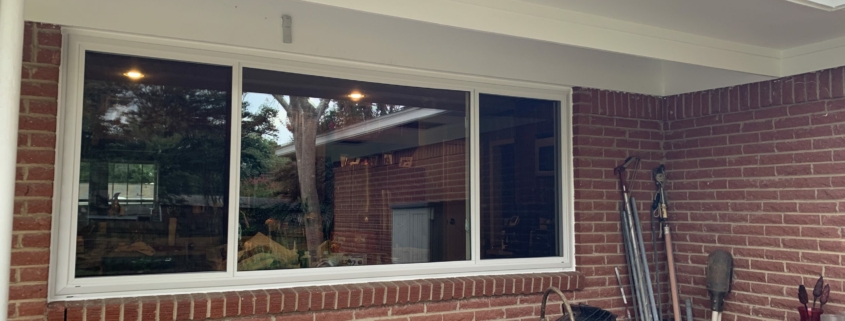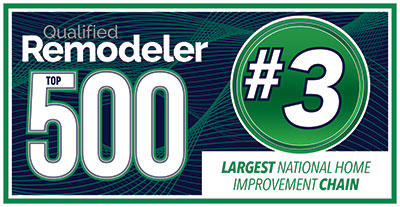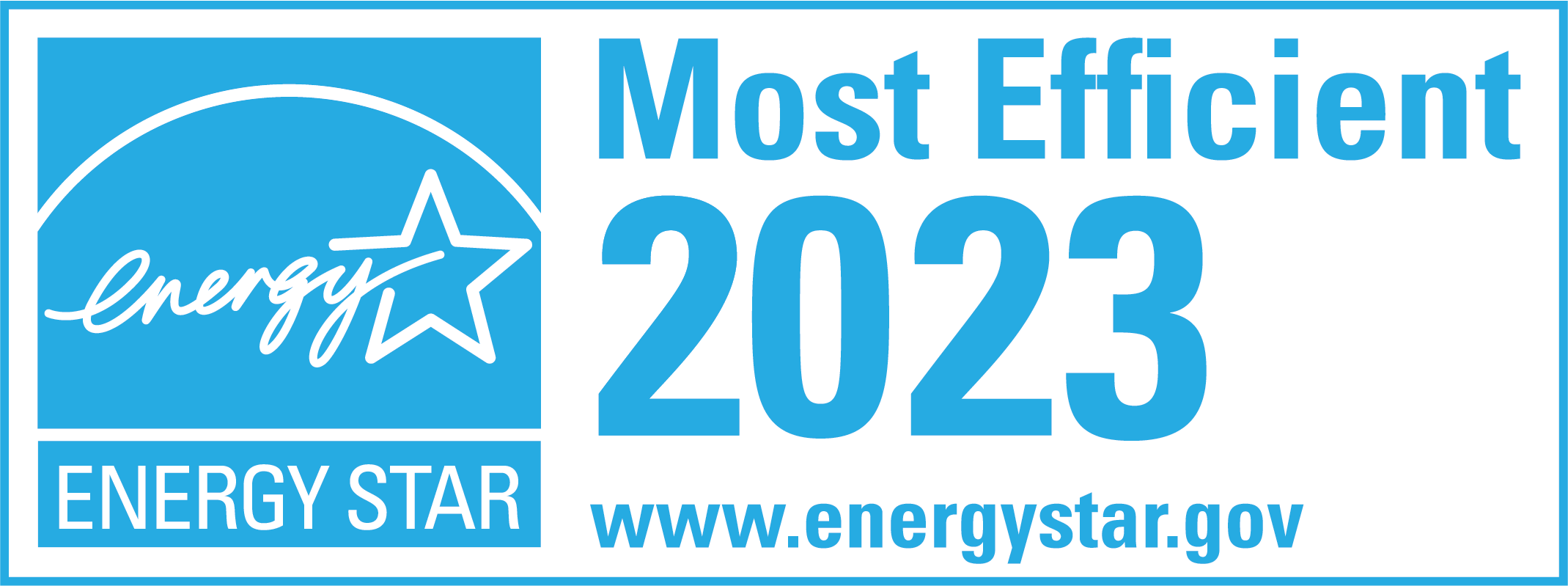How Are Vinyl Windows Made?
In this article, we will explore the fascinating process of how vinyl windows are made. Vinyl windows have gained popularity recently due to their durability, energy efficiency, and low maintenance requirements. Understanding the manufacturing process behind these windows can help us appreciate their many benefits and make informed decisions when purchasing or installing them.
Understanding the Basics of Vinyl Windows
Before diving into the manufacturing process, let’s briefly discuss vinyl windows and their advantages.
When choosing windows for your home, several options are available, and one of the most popular choices is vinyl windows. These windows are made from polyvinyl chloride (PVC), a synthetic plastic commonly used in various applications. This versatile material is known for its exceptional strength, weather resistance, and thermal insulation properties.
What are Vinyl Windows?
Vinyl windows are not just ordinary; they are a smart investment for any homeowner. The PVC material in their construction offers numerous benefits that make them stand out from other window options.
First and foremost, vinyl windows are highly durable. Unlike traditional wooden windows that may warp, rot, or fade over time, vinyl windows are designed to withstand harsh weather conditions without deteriorating. This means they will maintain their functionality and appearance for many years, saving you the hassle and expense of frequent replacements.
Another notable benefit of vinyl windows is their excellent thermal insulation. The PVC material helps to regulate indoor temperature, reducing energy consumption and lowering heating and cooling costs. This is especially important in extreme climates, where the ability to retain heat in the winter and keep cool air in during the summer can significantly impact your energy bills.
In addition to their durability and energy efficiency, vinyl windows are known for their sound insulation properties. The PVC material acts as a barrier, effectively reducing outside noise pollution and creating a more peaceful indoor environment. This is particularly beneficial if you live in a noisy neighborhood or near a busy street.
Benefits of Vinyl Windows
Now that we better understand what vinyl windows are, let’s delve deeper into the numerous benefits they offer.
One of the key advantages of vinyl windows is their low maintenance requirements. Unlike wooden windows that need regular painting and sealing to prevent rot and decay, vinyl windows only require occasional cleaning with mild soap and water. This makes them an attractive option for homeowners who prefer to spend their time and energy on other tasks rather than constant window maintenance.
Furthermore, vinyl windows are available in various styles, colors, and finishes, allowing you to choose the perfect windows that complement your home’s architecture and personal style. Whether you prefer a classic look or a more modern design, there is a vinyl window option to suit your taste.
Additionally, vinyl windows are also highly cost-effective. Not only are they more affordable than many other window materials, but their energy efficiency can also lead to significant savings on your utility bills over time. By reducing heat transfer and minimizing air leakage, vinyl windows help to create a more comfortable living environment while reducing your carbon footprint.
Lastly, vinyl windows are environmentally friendly. The PVC material used in their production can be recycled, reducing waste and promoting sustainability. When it’s time to replace your vinyl windows, you can rest assured knowing they can be repurposed rather than ending up in a landfill.
As you can see, vinyl windows offer many benefits, making them an excellent choice for homeowners. From their durability and energy efficiency to their low maintenance requirements and design versatility, vinyl windows are a smart investment that can enhance your home’s comfort, aesthetics, and value.
Raw Materials Used in Vinyl Window Production
Now that we understand vinyl windows better let’s explore the raw materials involved in their manufacturing process.
Polyvinyl chloride (PVC) is used primarily when manufacturing vinyl windows. PVC is a synthetic plastic that has gained popularity in various industries due to its exceptional durability and ability to withstand different weather conditions. This is particularly important for windows, as they are constantly exposed to the elements.
One of the key advantages of using PVC in window manufacturing is its corrosion resistance. Unlike other materials, PVC does not rust or deteriorate over time, ensuring the longevity of vinyl windows. This is especially crucial for homeowners who want windows that will withstand time and require minimal maintenance.
However, PVC is not the only material used to produce vinyl windows. Manufacturers also incorporate several other essential materials to enhance the performance and aesthetics of the final product.
One such material is stabilizers. These additives are used to enhance the UV resistance of vinyl windows. By incorporating stabilizers into the manufacturing process, manufacturers can ensure that the windows will not fade or discolor when exposed to sunlight for extended periods. This is particularly important for homes in sunny climates, where harmful UV rays constantly bombard windows.
Another crucial material used in vinyl window production is impact modifiers. These additives are responsible for improving the strength and impact resistance of the windows. By incorporating impact modifiers into manufacturing, manufacturers can create windows that are less likely to crack or shatter when subjected to external forces. This is especially important for homes in areas prone to severe weather conditions, such as hurricanes or hailstorms.
Lastly, pigments are used to provide color options for vinyl windows. By incorporating pigments into manufacturing, manufacturers can offer various colors to suit different architectural styles and personal preferences. Whether homeowners prefer classic white windows or want to add a pop of color to their exteriors, vinyl windows can be customized to meet their design needs.
By carefully selecting and combining these materials, manufacturers can create vinyl windows that meet the highest quality standards and offer exceptional performance, durability, and aesthetic appeal. So, the next time you admire a vinyl window, remember that it is not just made of PVC but a combination of various materials that work together to provide you with a reliable and visually pleasing product.
The Manufacturing Process of Vinyl Windows
Now, let’s delve into the intricate manufacturing process of vinyl windows, which involves several key steps.
Extrusion of Vinyl Profiles
The production process begins with the extrusion of vinyl profiles. These profiles are long, hollow shapes that will form the window’s frame. The PVC material is melted and forced through a specially designed-mold to create the desired profile shape.
Cutting and Assembly of Window Frames
Once the vinyl profiles are extruded, they are cut into the required lengths and assembled to form the window frames. This involves joining the profiles at the corners using techniques such as welding or mechanical fastening.
Installation of Glass Panes
The next step is the installation of glass panes within the window frames. The panes are carefully measured, cut, and then secured in place using specialized adhesives or gaskets. This ensures a secure and weatherproof seal.
Quality Control in Vinyl Window Manufacturing
Quality control is a crucial aspect of vinyl window manufacturing to ensure that each window meets the necessary performance and durability standards.
Ensuring Dimensional Accuracy
Manufacturers employ meticulous checks to ensure the dimensional accuracy of the vinyl profiles and window frames. This involves measuring critical dimensions to verify that they fall within the specified tolerances. Any discrepancies are promptly addressed to maintain consistent quality.
Checking Material Quality
Another vital aspect of quality control is examining the raw materials used in window production. Each batch of PVC and other materials undergoes rigorous testing to confirm compliance with relevant industry standards. By maintaining strict material quality controls, manufacturers can guarantee their vinyl windows’ superior performance and longevity.
Environmental Impact of Vinyl Windows
Lastly, let’s consider the environmental impact of vinyl windows and their contribution to building sustainability.
Energy Efficiency of Vinyl Windows
Vinyl windows are highly energy-efficient, meaning they help reduce energy consumption and lower greenhouse gas emissions. The exceptional thermal insulation properties of vinyl windows minimize heat transfer, reducing the need for excessive heating or cooling. This benefits the environment and translates into long-term cost savings for homeowners.
Recycling and Disposal of Vinyl Windows
It is worth noting that vinyl windows are recyclable. They can be processed and repurposed into new products at the end of their lifespan. This recycling process helps reduce waste and conserves valuable resources. We can actively contribute to sustainable practices and the circular economy by opting for vinyl windows.
In conclusion, producing vinyl windows involves carefully selecting raw materials, precise manufacturing techniques, and stringent quality control measures. The result is a product known for its durability, energy efficiency, and sustainability. By understanding how vinyl windows are made, we can appreciate their many advantages and make informed choices for our homes. So, whether you’re considering replacing your windows or embarking on a new construction project, vinyl windows are undoubtedly an excellent option.
Our service area includes the following towns: Tyler, Whitehouse, Bullard, Lindale, Chandler, Canton, Mineola, Longview, Kilgore, Henderson, Gilmer, Gladewater, Marshall, Hallsville, and Palestine.









